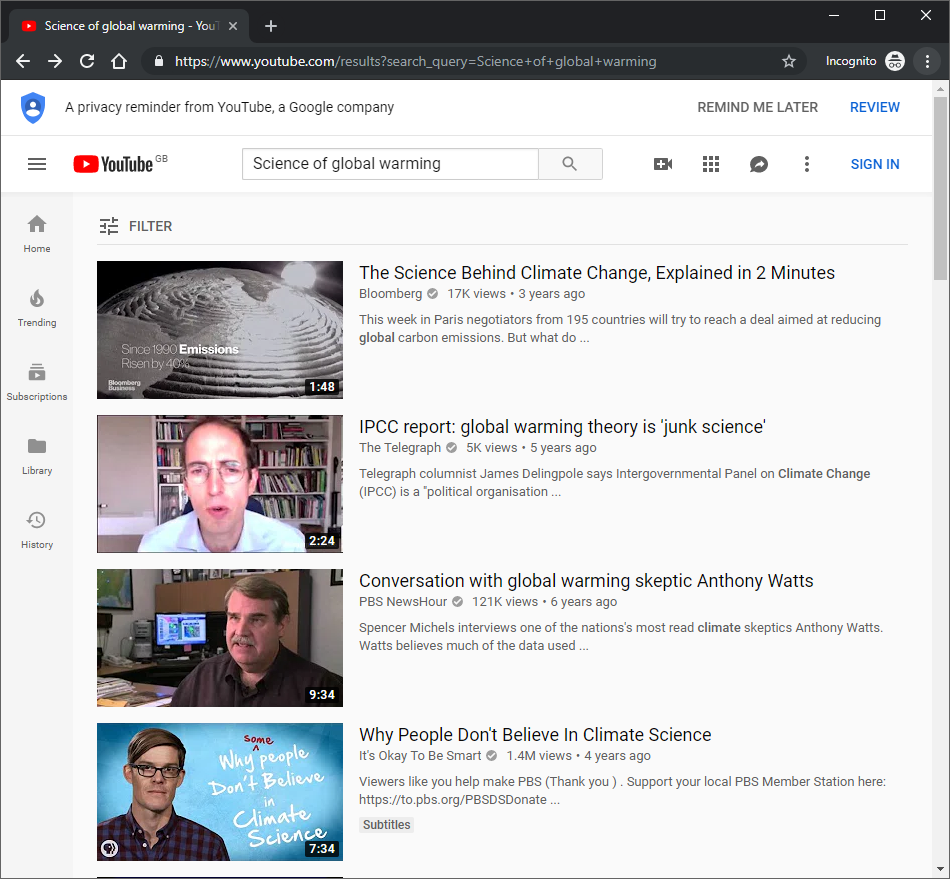After attending some Extinction Rebellion protests on climate change, I have been doing a lot of thinking on the issue. I used to think the whole thing was hopeless and we would just keep burning fossil fuels until they were no longer economically profitable by which point it would be too late. The recent grassroots upswell of activism and awareness in the UK and elsewhere has given me hope that perhaps this outcome is not set in stone.
Primarily the problem facing us is political. The technology exists we just have to implement it. Some would say it is an economic challenge as well but there is debate as to whether a switch to 100% renewable, zero carbon economy would actually save us money. It certainly will save us money in the long run given the consequences of inaction but whether it does in the short, medium or long term is irrelevant. Without a fundamental shift in global energy policy, we are heading for a 4°C world or above and all the disasters that entails.
We need massive new investment in renewable energy and energy distribution, home insulation and efficiency, a ban on new fossil fuel exploration including fracking. This requires nations to work together. To deal with this crisis we require leadership, honest analysis and concerted political action. XR has raised the profile of climate change up the political agenda but this is not enough on its own.
This led me to think about why, as a society, we are not currently taking the necessary action. For decades climate change denial has been at the heart of the problem. In Europe whilst most but not all mainstream politicians now accept the scientific consensus that is not necessarily true of the electorate (my otherwise intelligent father included). Go on any right-wing or populist media site in the UK and you will see plenty of comments that support climate change denial. These people vote. The problem is far worse in the USA, the country with one of the biggest greenhouse gas emissions per capita of any country.
So why the left, right split? I naively thought climate change and the potential global problems it brings should be above this sort of politics. After all, if your million dollar Malibu mansion gets burnt down in a forest fire because of excessive droughts and high temperatures you ought to care about that if only for selfish reasons. I have spent a lot of time over the last week trying to understand climate change denial. Jean-Daniel Collomb argues that in the USA, three factors are responsible for promoting climate change denial, corporations wishing to maintain the status quo and reduce regulation in order to maximise their short-term profits, small government conservative libertarians who have an ideological commitment to de-regulation and that any attempt to combat climate change would necessarily result in a curtailing of the American way of life and its ever-increasing need for consumption and prosperity. Conservative free marketeers cannot accept man-made climate change because it challenges their ideological belief in the market, as the only source of societal good. Naomi Oreskes states in Merchants of Doubt “Accepting that by-products of industrial civilization were irreparably damaging the global environment was to accept the reality of market failure. It was to acknowledge the limits of free-market capitalism.” There are echos of this thinking across UK populist, conservative and right-wing politics in the UK.
“It is widely accepted that carbon dioxide emissions have risen but the effect on the climate remains much debated while the computer modelling that has been done to date has not proved especially accurate … common sense dictates that if the Meteorological Office cannot forecast the next season’s weather with any success it is ambitious to predict what will happen decades ahead.” Jacob Rees-Mogg
“In the view of Piers [Corbyn] and his colleagues at WeatherAction, it is all about sunspots, and he is on record as believing that we are now due for a new ‘Maunder Minimum’ – like the famous cold spell in the 17th century, when the Thames froze several times,” Boris Johnson
“I think wind energy is the biggest collective economic insanity I’ve seen in my entire life. I’ve never seen anything more stupid, more illogical, or more irrational.” Nigel Farage
Collomb talks specifically about the USA but as highlighted above denialism is still a problem in the UK and elsewhere. Recently in Germany the AFD a far-right party which denies climate change entirely won over 12% of the popular vote. I would argue that the denialism of the USA has a direct influence on the rest of the world especially when it comes to online and social media. Social media by its nature is global in its reach, reinforces group thinking and is a huge hurdle in overcoming denialist attitudes when it comes to climate change.
This leads me on to the main point of this post. Large corporate tech companies believe in the science of global warming and are taking steps to mitigate their carbon footprint. We will leave aside the issue of whether they are doing enough or if regulation is sufficient and concentrate on their stated aims. Amazon, for instance, has announced a policy on net zero carbon shipment this year. Facebook has announced a policy of reaching 100% renewable energy for its activities by 2020. Google, whose corporate motto used to be “don’t be evil”, has according to their PR been carbon neutral since 2007. The problem is that if these companies promote a political momentum of climate change denial they may as well be powering their data centres with coal. The issue is global, requires political change across the world and this is hampered by their promotion of climate change denial.
Searching for the “The Great Climate Change Swindle” on YouTube a widely debunked but superficially persuasive documentary, you can follow a rabbit hole of recommended climate denial videos. Search for “Science of Global Warming” and two of the top four hits are climate change denial videos. There are thousands of other sources from fossil fuel industry-funded pseudo-scientific organisations such as the Cato Institute or the Heartland Institute that can be found. If you click on one of these videos on every occasion you can find further climate change denial information. This stuff is pure dishonest cynical propaganda.

The large tech companies have vowed to fight fake news and terrorism on their platforms. I would argue that given the outcomes of inaction on climate change, allowing climate change denial on their platforms is just as bad as allowing radical terrorism material. To be fair to Google there are some other videos that you can follow that support the consensus on climate change. However, if this is deliberate, which I suspect it is, we fall into the false balance trap. Thankfully, recently the BBC has acknowledged this and stopped the requirement of false balance. The likes of Nigel Lawson as a talking head to “balance” the consensus on climate change is no longer an issue on the BBC.
Big tech should drop false balance too. If I search youtube for “Science of Global Warming” that is what I should get. These companies invest billions in their search algorithms I am sure they could fix this if they so choose.
So, what should we do? I propose a campaign, starting with Google (YouTube) asking them to either take down the rankest examples of climate change denial or at the least put a disclaimer on these videos with links to real science, after all, they profess to be corporately invested in preventing climate change and if they are they should be campaigning to prevent it.
YouTube has an option to report fraudulent material I encourage you all to seek out and report climate denial material on YouTube and challenge them to take it down.
